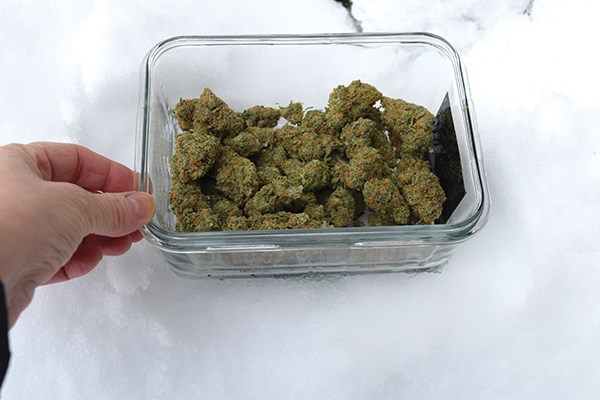Squamish marijuana advocates say they are cautiously optimistic about the federal plan to legalize the drug.
Last week, the Task Force on Cannabis Legalization and Regulation report to the federal government laid out more than 80 recommendations that create a framework for legalizing and regulating marijuana for recreational use.
The report recommends sales should be restricted to those 18 and older, with a personal possession limit of 30 grams.
It also recommends allowing edibles with restrictions and that provinces, in collaboration with municipalities, should regulate the retail sale of cannabis.
Mayor Patricia Heintzman said the District of Squamish will wait to see what shakes out in terms of the actual regulation when it is adopted and then, perhaps, adjust district guidelines.
“What we will have to do is look at what the feds will finalize… and then obviously figure out if we need to tweak any of our bylaws to fit with the federal regulations,” she said.
Council passed zoning and business licence guidelines to allow for storefront dispensaries in July.
Generally speaking, Heintzman said she liked the direction the report pointed government, calling the guidelines “intuitive.”
Cannabis should not be sold in liquor stores, according to the report, and it recommends allowing people to grow up to four plants for their own personal use.
Squamish’s Bryan Raiser, owner of 99 North Dispensary, said he found the recommendations “refreshingly civilized.”
“I’m pleased to see them quash the idea of liquor stores as it never made sense to force a recovering alcoholic to go into a liquor store,” he said, adding he looks forward to how the provision for marijuana lounges will play out.
Raiser also said he liked the plan to let people grow their own pot, though he questioned the limits on amounts it would be legal to grow and possess.
“I never did like numbers plucked out of the air, which is also why I take issue with the arbitrary 30-gram carry limit,” he said.
“All in all, I remain optimistic, but after sitting through over a decade of ‘committee recommendations’ I’m all too aware of how mangled things can get once it goes through the political and bureaucratic wringer.”
Tania Jackett, who owns Grassroots Dispensary Squamish and is on the board of directors of Cannabis Growers of Canada, said while the report “isn’t all bad, it’s far from perfect.”
In particular, Jackett said the Cannabis Growers of Canada cannot support recommendations to install “seed-to-sale tracking” and “taxing high-potency cannabis.”
“There is still a lot of work to be done to normalize cannabis and it’s various medical and industrial uses,” Jackett told The Squamish Chief.
“Where is the demonstrated harm with cannabis that justifies a strict ‘public health and safety’ regime? Will cannabis be governed like a firearm? Will paper criminals risk imprisonment for falling outside this new system?”
Much is still left to be done before marijuana is fully legalized, including devising a tax regime for the drug, according to the report.
The federal government estimates it could take two years for all the details to be ironed out.




